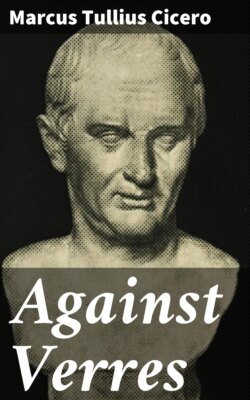Читать книгу Against Verres - Marcus Tullius Cicero - Страница 64
На сайте Литреса книга снята с продажи.
42
ОглавлениеTable of Contents
Publius Annius had made his will in accordance with law, with the statutes, with the authority of all who were consulted; a will neither improper, nor made in disregard of any duty, nor contrary to human nature. But even if he had made such a will as that, still, after his death no new law ought to have been enacted which should have any effect on his will. I suppose the Voconian law pleased you greatly? You should have imitated Quintus Voconius himself, who did not by his law take away her inheritance from any female whether virgin or matron, but established a law for the future, that no one who after the year of the existing censors should be enrolled in the census, should make either virgin or matron his heir. 108In the Voconian law, there is no "has made or shall have made." Nor in any law is time past ever implicated in blame, except in cases which are of their own nature wicked and nefarious, so that, even if there were no law, they would be strenuously to be avoided. And in these cases we see that many things are established by law in such a way that things done previously cannot be called in question—the Cornelian law the law about testaments, the law about money, and many others, in which no new law is established in the nation, but it is established that what has always been an evil action shall be liable to public prosecution up to a certain time. 109But if any one establishes any new regulation on any points of civil law, does he allow everything which has been previously done to remain unaltered? Look at the Atinian law, at the Furian law, at the Voconian law itself, as I said before; in short, at every law on the subject of civil rights; you will find in all of them that regulations are established which are only to come into operation after the passing of the law. Those who attribute the greatest importance to the edict, say that the edict of the praetor is an annual law. You embrace more in an edict than you can in a law. If the first of January puts an end to the edict of the praetor, why does not the edict have its birth also on the first of January? Or, is it the case that no one can advance forward by his edict into the year when another man is to be praetor, but that he may retire back into the year when another man has been praetor? And if you had published this edict for the sake of right, and not for the sake of one man, you would have composed it more carefully.
